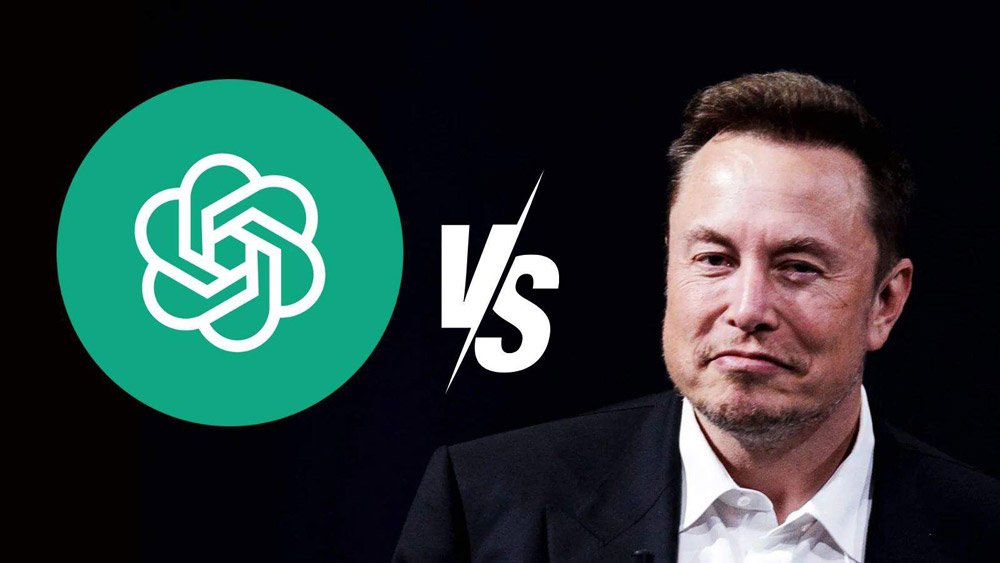Elon Musk, the billionaire entrepreneur and founder of xAI, has escalated his legal battle with OpenAI, filing a motion to block the company’s transition into a fully for-profit business model. According to court filings, Musk’s legal team is seeking a preliminary injunction to prevent OpenAI from shifting its corporate structure, which Musk claims could harm competition and stifle innovation in the rapidly evolving artificial intelligence (AI) industry.
Key Allegations Against OpenAI
Musk’s legal team, led by attorney Marc Toberoff, filed the motion on Friday, arguing that OpenAI’s planned restructuring and alleged anticompetitive practices violate federal laws. The filing claims that OpenAI is using its market power, enhanced by its relationship with Microsoft, to unfairly dominate the generative AI sector and prevent competitors, including Musk’s xAI, from accessing essential investment capital.
The lawsuit also accuses OpenAI of benefiting from “competitively sensitive information” obtained during Musk’s involvement with the company. Musk was one of OpenAI’s co-founders in 2015, but he parted ways with the organization in 2018.
“OpenAI cannot lumber about the marketplace as a Frankenstein, stitched together from whichever corporate forms serve the pecuniary interests of Microsoft,” Musk’s attorneys wrote in the filing.
Antitrust and RICO Allegations
In addition to opposing OpenAI’s conversion to a for-profit entity, Musk’s lawsuit alleges violations of federal antitrust and racketeering (RICO) laws. According to the complaint, OpenAI and Microsoft have engaged in practices that amount to a “group boycott,” wherein investors in OpenAI are allegedly required to refrain from funding rival companies like xAI.
The motion also claims that OpenAI has benefited from years of shared data and insights obtained during its earlier, non-profit phase, giving it an unfair competitive edge over new entrants in the market.
“Microsoft and OpenAI now seek to cement this dominance by cutting off competitors’ access to investment capital, while continuing to benefit from years’ worth of shared competitively sensitive information,” Musk’s attorneys argued.
OpenAI’s Response
An OpenAI spokesperson dismissed Musk’s latest legal move, calling it “utterly without merit.” OpenAI, which initially launched as a non-profit in 2015, transitioned into a “capped-profit” model in 2019. Under this structure, OpenAI’s non-profit entity governs a for-profit subsidiary. The organization is now reportedly moving toward becoming a fully for-profit public benefit corporation, a change that could make it more attractive to investors.
OpenAI has seen tremendous success in recent years, with its ChatGPT product driving significant interest in generative AI technologies. The company recently closed a funding round that valued it at $157 billion, with investments from Microsoft, Nvidia, and Thrive Capital.
Musk’s AI Ambitions and xAI
Musk’s AI startup, xAI, launched in July 2023 and has already made strides in the competitive AI landscape. The company released its Grok chatbot and is reportedly raising up to $6 billion at a $50 billion valuation to further expand its operations, including purchasing 100,000 Nvidia chips.
Musk’s legal battle with OpenAI reflects broader concerns about market concentration in the AI industry. The Federal Trade Commission (FTC) has already begun investigating partnerships and investments among major players like OpenAI, Amazon, Microsoft, and Alphabet to assess their impact on competition.
Implications for the AI Industry
The outcome of Musk’s legal challenge could have far-reaching implications for the future of AI development and investment. If successful, the lawsuit could force OpenAI to reconsider its corporate structure and practices, potentially reshaping the competitive landscape of the AI sector.











